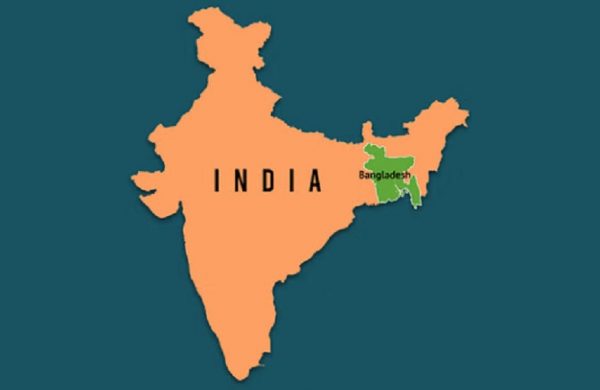Ending Misinformation to Strengthen India-Bangladesh Relations
- Update Time : Saturday, December 14, 2024

––Md Asifur Rahman––
Fake news has emerged as one of the most pressing challenges in the modern age, with India now at the centre of global attention. As a nation with one of the largest media landscapes in the world, India also faces significant scrutiny for its role in propagating misinformation.
According to the 2024 Global Risks Report by the World Economic Forum, India is identified as the most vulnerable nation to the threats of misinformation and disinformation. This vulnerability does not only harm domestic affairs but also has serious repercussions for its international relations, particularly with its neighbour Bangladesh.
Bangladesh has been a frequent target of fake news originating from Indian media and social media platforms. While this issue has persisted for years, the situation has reached an alarming level in the aftermath of the ouster of the Sheikh Hasina government. Baseless claims, doctored images and manipulated narratives have been circulating widely, exacerbating tensions and creating mistrust between the two countries.
Although the spread of fake news targeting Bangladesh is not a recent phenomenon in India, it has escalated to alarming levels following the fall of Sheikh Hasina’s government. Despite continuous efforts by fact-checkers based in and outside Bangladesh, Indian media platforms have made little effort to change their practices despite repeated concerns from different quarters.
The repercussions of such misinformation are manifold. Firstly, it tarnishes the historically strong bilateral relations between India and Bangladesh – two countries that have shared deep cultural, historical and economic ties. Misinformation damages trust and fosters animosity, particularly when it targets sensitive internal issues such as political stability, communal harmony or bilateral agreements.
Numerous Indian media outlets and social media activists have played an unethical role in spreading misinformation about Bangladesh. In particular, they frequently propagate fake news concerning minority issues in the country. For instance, a photo showing the aftermath of an arson attack on Bangladeshi cricketer Mashrafe Bin Mortaza’s house was used to depict an attack on the house of cricketer Litton Das, a Hindu. Actually Mortaza, an Awami League lawmaker, was targeted for his political ties, but the misinformation spread widely in India, with ultra-right-wing influencers amplifying the false claim. BBC traced the origins of this fake news and found that the misleading posts primarily surfaced from Indian accounts.
On the other hand, an old video showing a shop fire from July 2024 in Lakshmipur’s Maju Chowdhury market resurfaced as purported evidence of an arson attack targeting Hindu shops. Factwatch, the fact-checking arm of the University of Liberal Arts Bangladesh (ULAB), debunked the claim, noting that the fire was accidental. Despite this, the video continued to circulate on Indian social media, promoted widely through hashtags like #AllEyesOnBangladeshiHindus and carried by Sudarshan News.
The recent incidents of violence at the Bangladeshi diplomatic missions in Kolkata and Agartala might be viewed as a by-product of the tensions that have been exacerbated by the widespread circulation of fake news in the Indian media, especially those related to the arrest of the expelled ISKCON leader Chinmoy Krishna Das.
In this context, the visit of the Indian Foreign Secretary to Bangladesh can be seen as a form of “ice-breaking.” The Indian Foreign Secretary has explicitly stated that India wishes to work closely with the interim government, which is a significant statement given the current situation. On the other hand, India has expressed concerns about the safety and security of minority communities in Bangladesh. However, Bangladesh has firmly argued that it does not welcome interference from India in its internal affairs. Bangladesh has also requested Indian government to send their media representatives to Bangladesh to understand the real scenario.
It must be remembered that India is our closest neighbour. For various reasons, we are deeply dependent on each other. We have historical connection. The cultural ties between the two countries are also highly significant. Moreover, we acknowledge and greatly value India’s role in 1971. Both Bangladesh and India can benefit each other simply by maintaining good relations.
It is also a fact that several issues between Bangladesh and India remain unresolved. These matters were also discussed during the briefings by the two foreign secretaries. Key concerns include achieving zero border killings, tackling cross-border crimes, and addressing drug trafficking and other illicit activities, all of which require India’s active cooperation. Furthermore, the resolution of water-sharing disputes, particularly the Teesta River agreement and the equitable distribution of water from other shared rivers, remains a pressing need.
In order to ease the tensions between the citizens of the two countries, realistic and constructive initiatives are needed. In this regard, India must take a proactive and sincere role. Indian government must take pragmatic steps to address the issue of propaganda, false information, and misleading narratives in the Indian media. An active role of the journalists and media outlets is also essential in this context. At the same time, a strong message must be conveyed that as Bangladesh refrains from commenting on the internal matters of other countries, we (Bangladesh) also expect the same from others when it comes to our internal affairs.
____________________________________________
The writer is a journalist and currently working as News Editor of News24


















